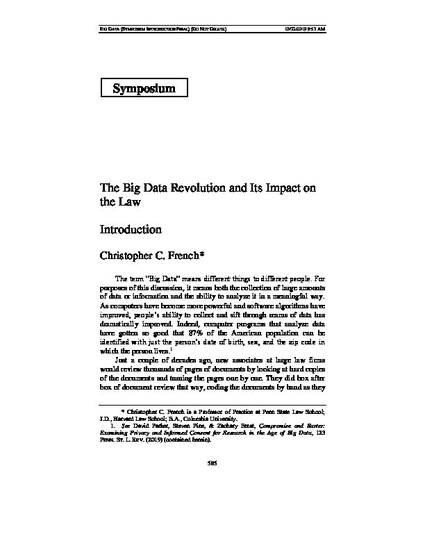
Article
The Big Data Revolution and Its Impact on the Law (Introduction)
Penn State Law Review
(2019)
Abstract
The term “Big Data” means different things to different people. For purposes of this discussion, it means both the collection of large amounts of data or information and the ability to analyze it in a meaningful way. The collection and use of Big Data raise significant issues regarding privacy and people’s rights to their own data. Although 91% of Americans have stated they believe they have lost control over how their personal information is collected and used by other entities, millions of people continue to use social media from which their personal data is mined and sold.
On March 22, 2019, the Penn State Law Review held a symposium to discuss Big Data and the impact it is having on the law. The symposium was comprised of an eclectic group of legal practitioners, legal scholars, and a student presenting five papers. Collectively, the articles reveal that Big Data is impacting people’s lives in countless ways, both good and bad. The law is attempting to address the needs and rights of both consumers and Big Data collectors, but the law often develops retrospectively rather than prospectively, which means it is particularly challenging to balance the competing interests in this rapidly evolving area of the world and law.
Keywords
- big data,
- insurance,
- privacy,
- consumers,
- social media,
- Facebook,
- health care,
- medical research,
- biometric,
- virtual reality,
- GPS,
- satellites
Disciplines
Publication Date
2019
Citation Information
123 Penn St. L. Rev. 585 (2019)
